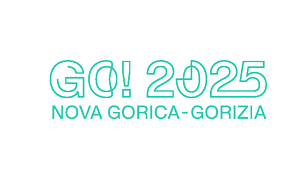Transcendental is an interactive sculpture enabling the re-visioning of the celestial heavens to immortalize queer and trans icons through the creation of a new exoplanet for present and future queer and trans existence. By the end of 2024, scientists have discovered 5811 exoplanets in 4340 planetary systems. Through the interactive involvement of visitors, Transcendental ensures one of these exoplanets includes a safe place for queer and trans communities.
Upon entering a dark circular curtain, a spotlight shines upon an interactive sculpture of a copper volcano, surrounded by an etched disk showing a celestial map of queer and trans constellations, placed on a podium. The visitor touches the knob embedded within the volcano, which, as it moves, lights up the LEDs of one of the constellations woven into the copper mesh sculpture of the five celestial bodies suspended in the room. On its ceiling is a projection of the Northern Hemisphere’s galaxy system.
By launching a particular hexadecimal code of the rainbow spectrum on the podium disk’s colour wheel, the visitor activates these celestial bodies’ constellations, visualized by stars embedded in the copper mesh, and hears quotations of queer activists. Each of the five sculptures is formed in the image of the body of each activist. The human rights quotations are chosen from transnational activists, immortalizing their thoughts in this astronomical universe as constellations and heavenly bodies.
Upon the fifth interaction, the volcano launches a final constellation by emitting ash into the heavens, and a quote describing the visitor´s contribution of this new exoplanet in this re-imagined astronomical universe. By engaging with Transcendental, the visitor tenderly generates a place for queer and trans history in our expanding cosmos for all genders and forms of life, where life is free, complex, queer, weird, and curious, with no judgement or danger.
Elizabeth Littlejohn is a communications professor, human rights activist, photojournalist, and documentary filmmaker. She has written for seventeen years on social movements, sustainable urban planning, and climate change. As a running gun social movement videographer, she has filmed Occupy, Idle No More, and climate change movements internationally.
In 2018 she directed, filmed, and produced ‘Leelah’s Highway’, a broadcast half hour documentary focusing on the suicide of trans youth, Leelah Alcorn, and ‘Frolic’s Haunt’, a nine-minute documentary about a queer, accessible haunted house, with its own unique scare system. Both documentaries were shown in international film festivals. ‘Leelah’s Highway’ won honourable mention for best short film in OutShine and the Cindependent Film Festival in 2018.
In 2022 Elizabeth Littlejohn directed ‘The City Island’, a feature-length documentary about the razing of homes on the Toronto Island, and the Islanders’ stewardship of the park system. As an extension of this documentary, Elizabeth created and designed the 'Toronto Island Puzzle Tour', an augmented-reality smartphone application depicting six locales of the hidden history of the Toronto Island, funded by the City of Toronto’s Artworx Grant. She has just finished directing 'More than a Beach', a 21-minute documentary about a fictionalized beach and social distancing compound in the west end of Toronto, with tour guide, Shari Kasman.
daniela brill estrada is an artist and researcher from Bogotá, living and working in Vienna. in her artistic work, currently focused on origin of life research and astrobiology, daniela shows matter that mutates, changes and interacts, to question and challenge western hierarchical taxonomies, disciplines, and categories. in her installations and research daniela questions the apparent static, binary, linear and mechanical existence of bodies, humans, societies, and systems, and looks for the complex, chaotic elements that guide them. daniela is currently an artist in residence at the SETI institute, and a PhD candidate at the art x science school for transformation.
Back








